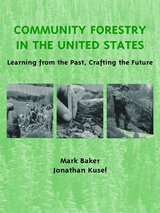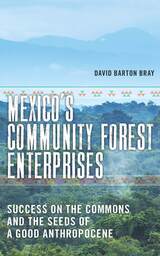
Across the United States, people are developing new relationships with the forest ecosystems on which they depend, with a common goal of improving the health of the land and the well-being of their communities. Practitioners and supporters of what has come to be called community forestry are challenging current approaches to forest management as they seek to end the historical disfranchisement of communities and workers from forest management and the all-too-pervasive trends of long-term disinvestment in ecosystems and human communities that have undermined the health of both.
Community Forestry in the United States is an analytically rigorous and historically informed assessment of this new movement. It examines the current state of community forestry through a grounded assessment of where it stands now and where it might go in the future. The book not only clarifies the state of the movement, but also suggests a trajectory and process for its continued development.

Mexico presents a unique case in which much of the nation’s forests were placed as commons in the hands of communities, who, with state support and their own entrepreneurial vigor, created community forest enterprises (CFEs). David Barton Bray, who has spent more than thirty years engaged with and researching Mexican community forestry, shows that this reform has transformed forest management in that country at a scale and level of maturity unmatched anywhere else in the world.
For decades Mexico has been conducting a de facto large-scale experiment in the design of a national social-ecological system (SES) focused on community forests. What happens when you give subsistence communities rights over forests, as well as training, organizational support, equipment, and financial capital? Do the communities destroy the forest in the name of economic development, or do they manage them sustainably, generating current income while maintaining intergenerational value as a resource for their children? Bray shares the scientific and social evidence that can now begin to answer these questions. This is an invaluable resource for students, researchers, and the interested public on the future of global forest resilience and the possibilities for a good Anthropocene.
READERS
Browse our collection.
PUBLISHERS
See BiblioVault's publisher services.
STUDENT SERVICES
Files for college accessibility offices.
UChicago Accessibility Resources
home | accessibility | search | about | contact us
BiblioVault ® 2001 - 2024
The University of Chicago Press









